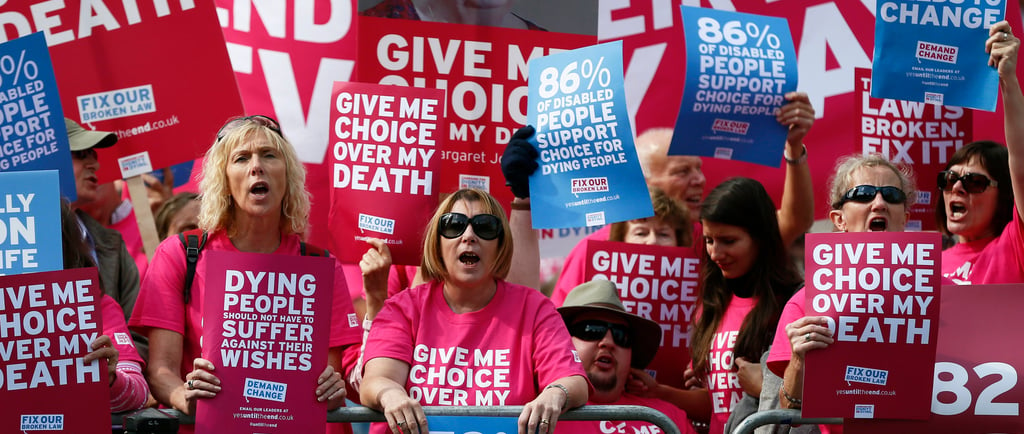UK End of Life Bill 2025: Why Funding Could Delay Assisted Dying Law
The UK House of Commons has passed the Terminally Ill Adults (End of Life) Bill — bringing voluntary assisted dying one step closer to becoming law. But can the UK actually afford to implement it? And will the House of Lords approve it?
7/7/20254 min read


The UK Moves Closer to Legalising Assisted Dying: What You Need to Know
On 20th June 2025, the UK House of Commons passed the Terminally Ill Adults (End of Life) Bill, marking a historic step toward legalising voluntary assisted dying (VAD) for terminally ill adults in England and Wales. While the news has been met with widespread support, the bill now faces two significant hurdles in the House of Lords: safeguarding concerns and funding limitations. Both could complicate the bill’s implementation.
What Does the Bill Propose?
In short, this bill would allow adults diagnosed with a terminal illness and given six months or less to live the legal right to seek medical support to end their lives. The UK has attempted to pass such legislation six times before, dating all the way back to 1936. This seventh attempt finally succeeded in passing through the House of Commons — a major milestone.
The bill is now undergoing further scrutiny in the House of Lords. Although laws that reach this stage are typically approved (sometimes with amendments), this bill faces two key issues that could delay or derail progress: safeguarding and funding.
Safeguarding: Raising the Right Questions
Every country that has debated assisted dying has encountered safeguarding concerns. The UK is no different. Various organisations — including the British Medical Association, disability rights advocates, and palliative care experts — have voiced specific worries:
Coercion or undue influence: Vulnerable people might feel pressure to end their lives to avoid being a burden.
Mental capacity: Determining whether someone can truly consent, especially if they’re struggling with depression or cognitive decline.
Accuracy of prognosis: Predicting a six-month life expectancy is notoriously unreliable.
Oversight: Critics are concerned the proposed multidisciplinary panels may lack independence and rigour.
Cultural normalisation: Some fear assisted dying could become an expected norm rather than an individual choice.
Impact on palliative care: Will assisted dying shift focus or resources away from improving quality of life?
Conscientious objection: Will healthcare workers be protected if they choose not to participate?
Enforcement of safeguards: How will safeguards be monitored across the NHS or private providers?
While these concerns are valid and should be addressed, many safeguards already being proposed are similar to those used in countries like Australia and Canada:
Mandatory assessments by two doctors
Panel approval of applications
Voluntary, informed, and consistent patient consent
Cooling-off periods (length still under debate)
Reporting and auditing of all cases
Safeguards are essential — but as always, it’s the enforcement and oversight that determine effectiveness.
Can the UK Afford It?
Funding may be the larger hurdle. Health Secretary Wes Streeting has voiced strong doubts about whether the NHS can afford to implement the service. Establishing approval panels, training staff, and setting up infrastructure is projected to cost £11–£14 million annually, with a total potential cost of £500 million over a decade.
Streeting stressed that there is currently no allocated budget and warned that this new law could divert resources from already underfunded areas like cancer treatment and mental health services. Prime Minister Keir Starmer has acknowledged these concerns, stating that “choices will need to be made to prioritise funding.”
To put this in perspective: the NHS has an annual budget of over £180 billion. Even a £20 million annual cost represents a small fraction of this. For further comparison, the UK’s failed COVID test and trace system cost £37 billion over two years.
So while the price tag isn’t insignificant, the real issue seems to lie more with political will and resource planning than the availability of funds.
Should the Private Sector Step In?
One suggestion gaining traction is involving the private sector to alleviate pressure on the NHS. This idea, however, has drawn criticism for “commercialising death.” Still, models from other countries suggest it can be done ethically and effectively:
Canada: Private hospices offer MAiD (Medical Assistance in Dying) where public institutions object.
Switzerland: Organisations like Dignitas have offered assisted dying services for decades.
USA (Oregon): Private and public systems operate in parallel.
Pros of Private Sector Involvement:
Faster, more personalised service
Flexible, home-based options
Dedicated, specialised teams
Cons:
Access may be limited to those who can afford it
Risk of reduced oversight or inconsistent standards
Ethical concerns around profit-driven care
A hybrid model might work best — one that ensures basic universal access via the NHS, supplemented by private services under strict regulation.
What Happens Next?
If the bill survives its final two rounds in the House of Lords, it could receive royal assent by October 2025. This would begin a four-year rollout to fully implement the law. But it’s important to note: this is a private member’s bill, not a government-backed one. That means it may not receive the same level of priority, though Parliament has committed to ensuring time is made for debate.
At Taboo Education, we’re keeping a close watch on how this unfolds. Legalising assisted dying is a deeply complex issue. It raises practical, ethical and cultural questions that don’t have easy answers. But it also forces us to ask how we want to care for one another at the end of life — and what a good death truly looks like.
Let us know what you think, and if you’re based in the UK, consider sharing this article with someone who should be part of the conversation.
Go talk death.
Want to go deeper?
We offer consultations and tailored education sessions exploring death, trauma, cultural narratives, and how to talk about difficult topics. Whether you’re an educator, student, or simply curious — we’re here to help you navigate these conversations with care and depth.
🎁 Download our digital resources – a mix of practical tools and in-depth guides on grief, mental health, and supporting others through difficult times.
⭐️ Join us on Patreon - Exclusive content and community access.
🧠 Book a one-on-one session – talk with a professional in a safe, compassionate space

